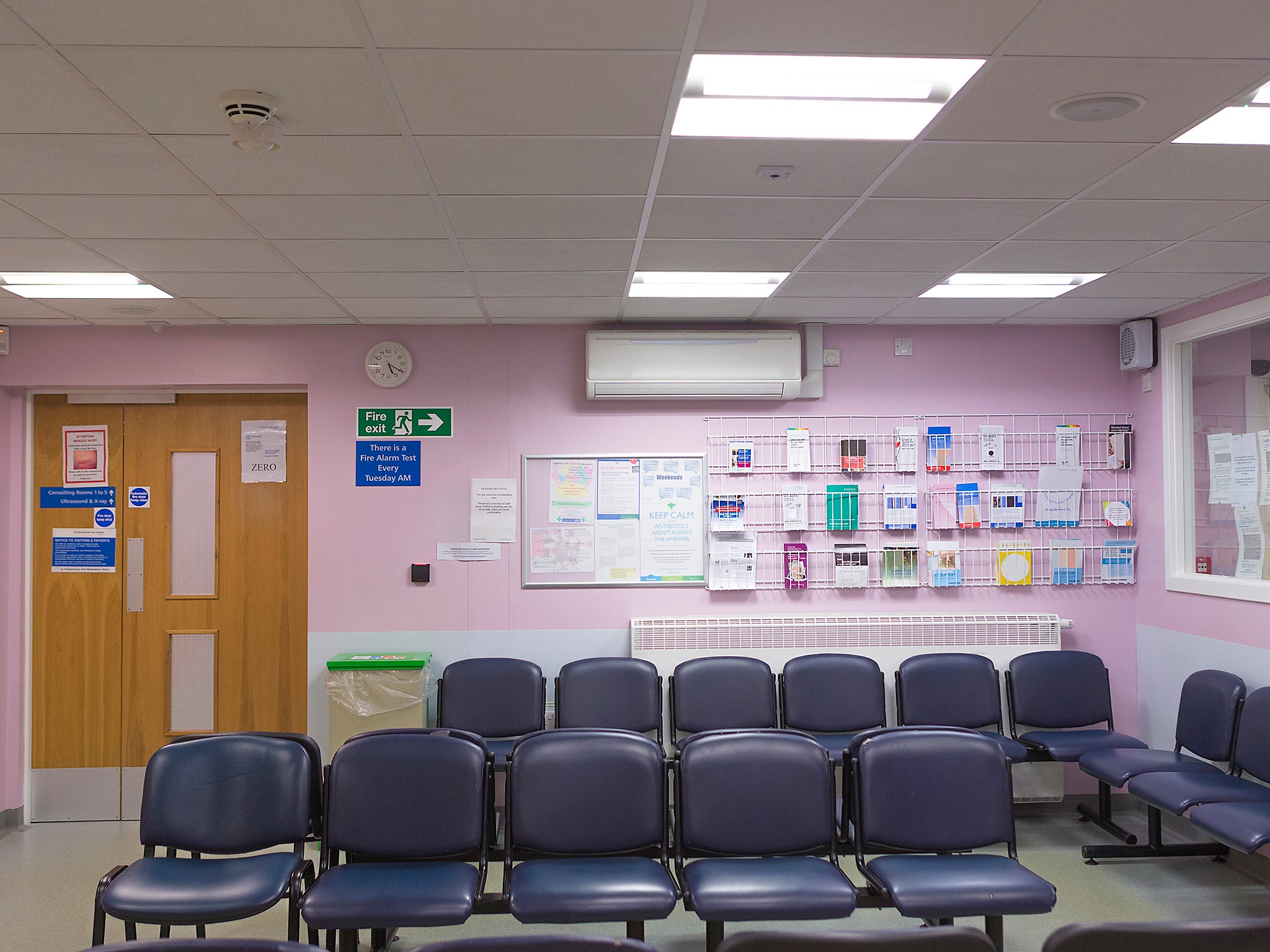GPs back plans to fine patients for not turning up to appointments
Only a third opposed fines, saying they would hit the most vulnerable

Your support helps us to tell the story
From reproductive rights to climate change to Big Tech, The Independent is on the ground when the story is developing. Whether it's investigating the financials of Elon Musk's pro-Trump PAC or producing our latest documentary, 'The A Word', which shines a light on the American women fighting for reproductive rights, we know how important it is to parse out the facts from the messaging.
At such a critical moment in US history, we need reporters on the ground. Your donation allows us to keep sending journalists to speak to both sides of the story.
The Independent is trusted by Americans across the entire political spectrum. And unlike many other quality news outlets, we choose not to lock Americans out of our reporting and analysis with paywalls. We believe quality journalism should be available to everyone, paid for by those who can afford it.
Your support makes all the difference.More than half of GPs would back plans to fine patients for not turning up to appointments in a bid to address the almost £1bn a year that no-shows cost the health service, a survey has revealed.
In 2015, Health Secretary Jeremy Hunt said that he approved of a fine “in principle”, but the proposal was swiftly slapped down and received a mixed reaction from doctors.
GPs told The Independent that, while they can “see the attraction”, it would be a minefield for practices to enforce and would likely punish patients who most need to be seen.
Earlier this year the Labour Party released analysis showing millions of patients finding it harder to get through to see their GPs.
And responding to the poll, by the magazine for GPs Pulse, a total of 51 per cent of family doctors said “patients should be fined for not attending GP appointments”.
One respondent to today’s survey, a GP in north London, said that removing missed appointments in their surgery would mean an extra week of GP time every month.
Only a third (37 per cent) of the 821 GPs who responded said they would be totally against it, with the remaining 12 per cent yet to make up their minds
While Mr Hunt’s endorsement of the scheme was rejected by the Government, a GP partner in west Kent told the magazine: “We cannot continue to pretend that this is not a problem”.
Another suggested a £10 charge might work.
A GP in north-west Surrey said: “When some services appear ‘free’, some patients do not always appreciate the true costs to provide that service.”
But Dr Russell Brown, a GP partner in East Sussex, told The Independent that the scheme wouldn’t solve the problems of demand.
“I can see the attraction of it. But how would it work?
“Do the practices do it? That’s a huge job, and what are we going to do about people who refuse to pay?
“It’s a minefield and I’m not convinced it would do anything to solve any of the problems general practice is facing.”
He added that the people GPs see missing appointments were often their more vulnerable patients.
“It’s certainly more frequent in people who tend to have chaotic lives. Most people turn up, but young people miss more appointments, people in poverty, even old folk with dementia.
“It’s exactly the people you’d expect and, generally speaking, it’s the people who need to access general practice more than other groups.”
Dr Brown added that the impact varied drastically from practice to practice depending on how they book appointments, and some practices might not even record them.
GP representatives for the British Medical Association, who negotiate the national contract GPs operate on, said they also opposed the fines.
A BMA spokesperson told Pulse: “Those who may be most likely to miss appointments, particularly vulnerable patients, may also be the people who would be exempt from fines and fining them is not the way to address some none attendance issues.”
Join our commenting forum
Join thought-provoking conversations, follow other Independent readers and see their replies
Comments